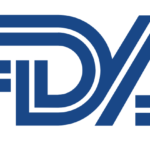
The Food and Drug Administration (FDA) on Monday has tightened up its regulations on antibody tests, issuing a revised policy. It also put an explanatory document on its website.
Antibody tests are intended to tell whether a person has had COVID-19, but cannot determine the level or duration of immunity from reinfection.
The action came in the wake of Dr. Michael Osterholm of the director of the Center for Infectious Disease Research and Policy at the University of Minnesota, in an interview on CNBC, describing antibody testing as the “wild wild West.” The FDA has so far authorized 12 tests, but there are at least 200 more antibody tests being offered for sale and which the FDA is reviewing. Up until now, the FDA was allowing companies to “self certify” the validity of their tests.
Under this revised policy, the FDA has outlined the following expectations for antibody test developers:
- Commercial manufacturers will submit Emergency Use Authorization (EUA) requests, with their validation data, within 10 business days from the date they notified the FDA of their validation testing OR from the date of this policy, whichever is later.
- Furthermore, the FDA has provided specific performance threshold recommendations for specificity and sensitivity for all serology test developers.
The FDA is now setting thresholds for sensitivity (true positives) at 90% and for specificity (true negatives) at 95%.
Roche has gotten approval from the FDA for its antibody tests, which it says are have a specificity (true negatives) greater than 99.8% and sensitivity (true positives) of 100%, based on testing done 14 days after having a patient confirmed via testing as having COVID-19. Roche says it plans to ship double-digit millions of tests this month.
Severin Schwan, CEO Roche Group, said ”I am in particular pleased about the high specificity and sensitivity of our test, which is crucial to support health care systems around the world with a reliable tool to better manage the COVID-19 health crisis.”